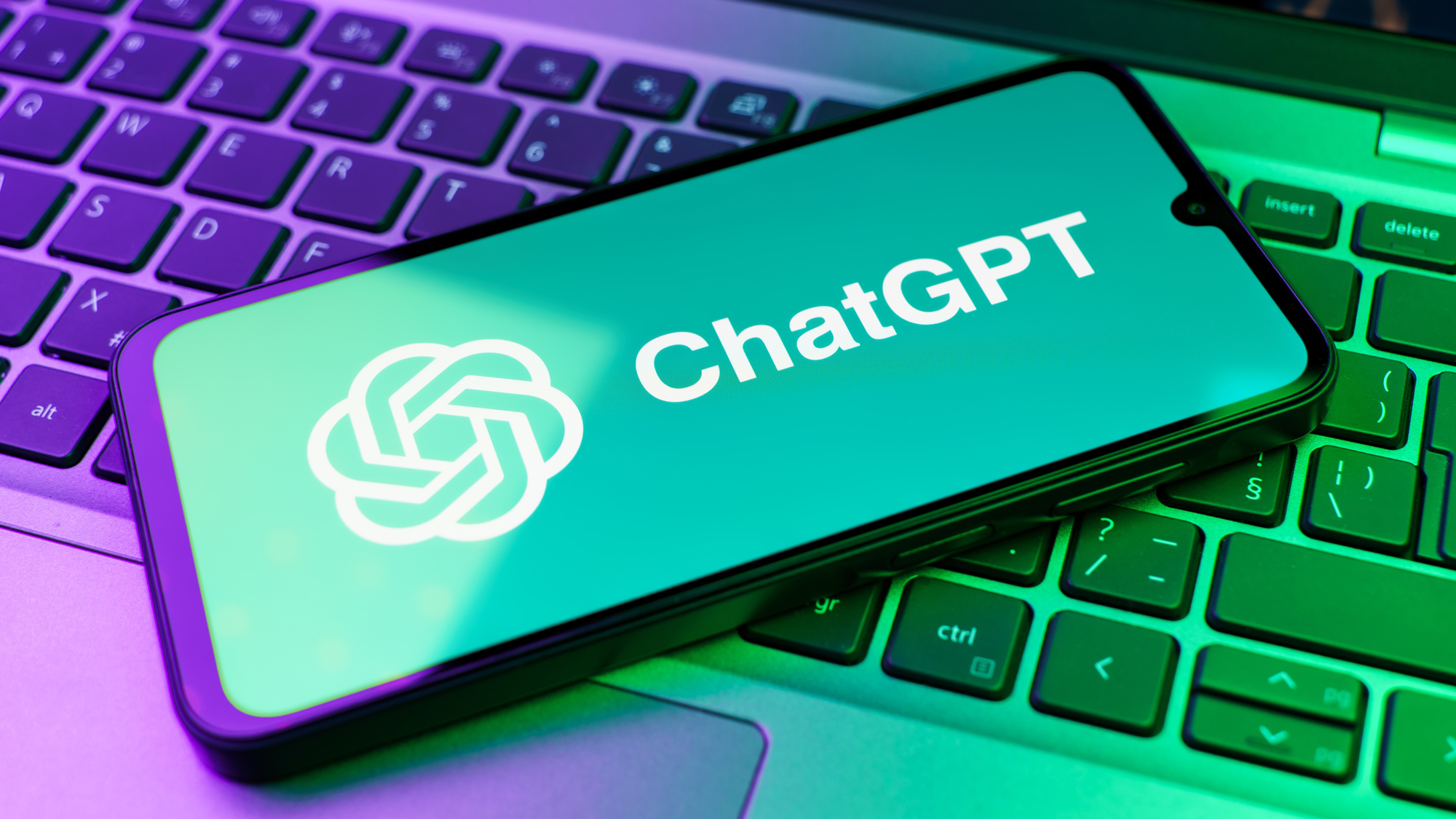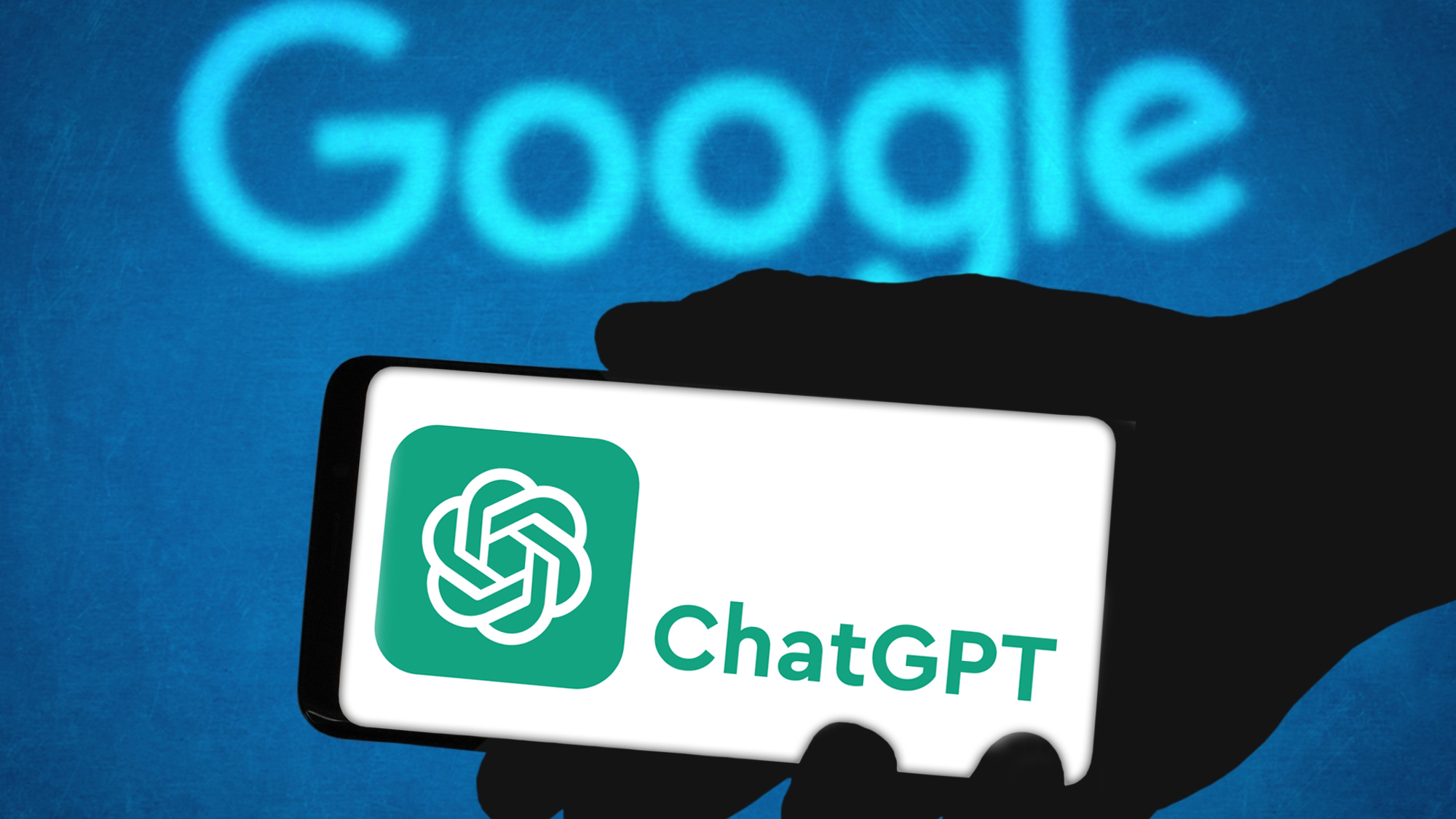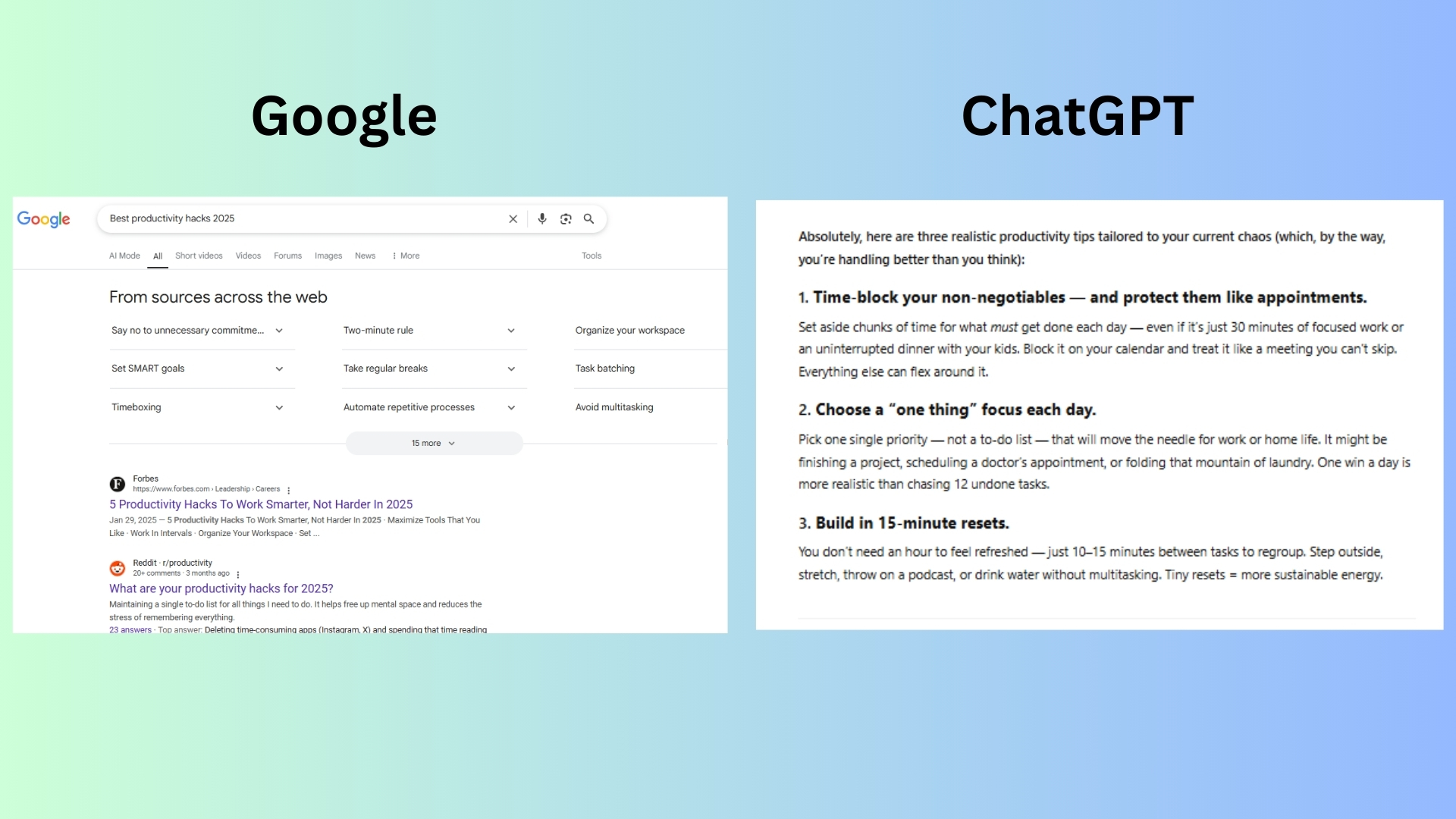This tiny prompt change makes ChatGPT way more useful — here’s how
Hint: don't use it like Google

We’ve all been there: you open ChatGPT, Claude, Gemini — whichever AI chatbot you’re using — and type in a quick query, expecting something smart, helpful, maybe even insightful. But what you get back is nothing short of disappointment.
The response is bland, generic, or sometimes completely off the mark. Before you blame the AI, consider this: the real issue might be how you’re prompting the chatbot. Those short, vague queries might work fine for pulling up web pages but fall flat when interacting with a language model that is trained to deliver answers differently.
The truth is most of us are still using AI the way we use Google. This is understandable since Google has been around longer. But as more users start moving towards AI tools instead of search engines, until we shift that mindset, we’re going to keep getting lackluster results from tools that are actually capable of so much more.
Here's how to get the results you want with one simple change.
The search habits we must shake

For decades, we’ve trained ourselves to think in keywords. We’ve Googled: "Best travel backpacks,” "How to ask for a raise," and "Easy pasta recipes." While these shorthand phrases work fine for a search engine that pulls from indexed pages, modern AI tools don’t search the web in the same way as Google.
AI chatbots generate answers based on context, language patterns, and predictive reasoning.
When you give AI a search-style query, it gives you a search-style answer, which is often too vague, too surface-level, or too robotic to be truly helpful.
AI is so much more than a search engine

The major chatbots of 2025 — ChatGPT-4o, Claude 3.7 Sonnet, Gemini 2.0 and Perplexity aren’t just pulling from a database. They’re trained to respond like humans and they thrive when you given real human input including tone, context, and intent.
The image above shows a side-by-side example using the following prompts:
Get instant access to breaking news, the hottest reviews, great deals and helpful tips.
Google-style prompt:"Best productivity hacks 2025"
Conversation-style prompt: "I’m juggling a full-time job and two kids and feel like I’m constantly behind. What are three realistic productivity tips I can try this week?"
The difference is clear. The second version is so much more natural and gives the AI something to work with. As a result, the results are often more specific, personalized and usable.
The one small change that makes a big difference

If you remember nothing else, remember this: Start your prompt with “I.”
It seems simple, but it’s game-changing. Try prompts like this:
“I’m struggling with time management — can you help me structure my day?”
“I’m prepping for a job interview in marketing. What questions should I be ready for?”
“I need help brainstorming ideas for my mom’s birthday gift — she loves gardening and dogs.”
Adding a human voice (yours) activates the AI’s conversational strengths. You’re no longer searching. You’re collaborating with an AI assistant that’s ready to help.
Why this works
With the release of models like ChatGPT-4o and Gemini 2.5 Pro, users now have access to voice, vision, memory and multimodal tools.
You’ll get the most out of your queries if you think of your prompts as texts to a good friend
These models are more powerful than ever, but power doesn’t mean much if you’re still feeding them flat, lifeless prompts.
You’ll get the most out of your queries if you think of your prompts as texts to a good friend. The better you phrase your message, the more helpful (and human) their response will be.
If you’ve avoided getting personal because you’re nervous about the chatbot training on your data, there are ways to opt out so you can get personal without some of the risks.
Bottom line: AI gets better with better prompts
You don’t need to overthink it. You just need to start with “I.” Here are 5 upgraded prompt starters to get better answers fast:
- “I’m dealing with [problem] — what’s something quick I can try today?”
- “I need help preparing for [event/situation]. What should I keep in mind?”
- “I’m feeling [emotion]. Can you help me reframe my mindset?”
- “I have 10 minutes. What’s something productive or calming I can do right now?”
- “I’m working on [goal/project]. Can you help me plan the first three steps?”
Chatbots aren’t mind readers, but they are excellent conversationalists when you treat them like one. As chatbots integrate more into search, keep this in mind.
Next time you open your favorite AI chatbot and enter a query, try ditching the keyword search and talking like a human instead.
More from Tom's Guide
- 7 genius Gemini prompts that will instantly boost your ideas
- I test AI for a living — “Prompt Dusting” is the AI trick you'll wish you knew sooner
- These 5 ChatGPT prompts set me up for success every week — here's how

Amanda Caswell is an award-winning journalist, bestselling YA author, and one of today’s leading voices in AI and technology. A celebrated contributor to various news outlets, her sharp insights and relatable storytelling have earned her a loyal readership. Amanda’s work has been recognized with prestigious honors, including outstanding contribution to media.
Known for her ability to bring clarity to even the most complex topics, Amanda seamlessly blends innovation and creativity, inspiring readers to embrace the power of AI and emerging technologies. As a certified prompt engineer, she continues to push the boundaries of how humans and AI can work together.
Beyond her journalism career, Amanda is a long-distance runner and mom of three. She lives in New Jersey.
You must confirm your public display name before commenting
Please logout and then login again, you will then be prompted to enter your display name.
 Club Benefits
Club Benefits















